Chemistry
Sign up for our newsletter
We summarize the week's scientific breakthroughs every Thursday.
-
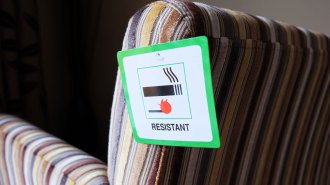 Chemistry
ChemistryPlant-based fire retardants may offer a less toxic way to tame flames
Flame retardants created from plant materials could be less harmful to the environment than traditional flame-smothering chemicals.
-
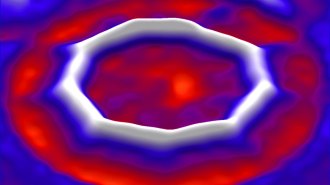 Chemistry
ChemistryChemists have created and imaged a new form of carbon
A new molecule takes its place among buckyballs, carbon nanotubes and other odd forms of carbon.
-
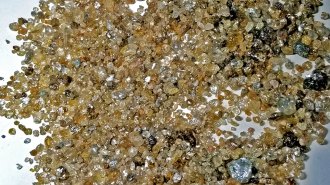 Earth
EarthFluid in superdeep diamonds may be from some of Earth’s oldest unchanged material
Primordial rock deep in the mantle and dating to just after Earth’s formation could yield insights about the planet’s formation and evolution
-
 Chemistry
ChemistryA fungus makes a chemical that neutralizes the stench of skunk spray
A compound produced by fungi reacts with skunk spray to form residues that aren’t offensive to the nose and can be more easily washed away.
-
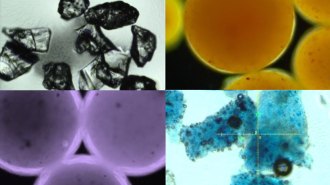 Tech
TechTiny magnetic coils could help break down microplastic pollution
Carbon nanotubes designed to release plastic-eroding chemicals could clear the long-lasting trash from waterways.
-
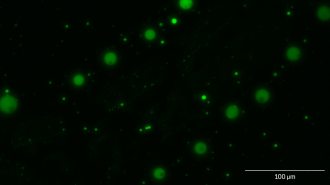 Chemistry
ChemistryDroplets of these simple molecules may have helped kick-start life on Earth
Simple molecules called alpha hydroxy acids form cell-sized structures in conditions mimicking early Earth chemistry.
By Carmen Drahl -
 Chemistry
ChemistryHow seafood shells could help solve the plastic waste problem
Chitin and chitosan from crustacean shells could put a dent in the world’s plastic waste problem.
By Carmen Drahl -
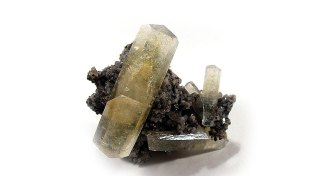 Chemistry
ChemistryCarbon plays a starring role in the new book ‘Symphony in C’
In Symphony in C, geophysicist Robert Hazen explores carbon’s ancient origins, its role in life and its importance in the modern world.
By Sid Perkins -
 Chemistry
ChemistryVaping the sweetener sucralose may produce toxic chemicals
Sucralose in e-liquids can break down, increasing toxic aldehydes in vapors and producing harmful organochlorines, including a potential carcinogen.
-
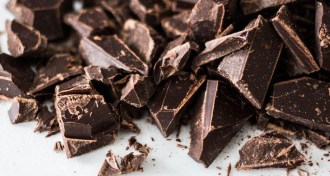 Chemistry
ChemistrySweaty, vinegary and sweet odors mingle to make dark chocolate’s smell
Scientists have worked out the chemistry of dark chocolate’s smell and reconstructed the aroma.
-
 Environment
EnvironmentEmissions of a banned ozone-destroying chemical have been traced to China
Since 2013, eastern China has increased its annual emissions of a banned chlorofluorocarbon by about 7,000 metric tons, a study finds.
-
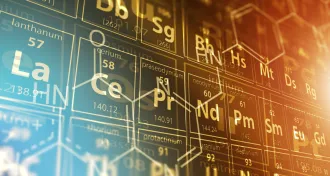 Chemistry
Chemistry50 years ago, scientists fought over element 104’s discovery
A conflict known as the Transfermium Wars marked a contentious struggle over the search for new elements beginning in the 1960s.